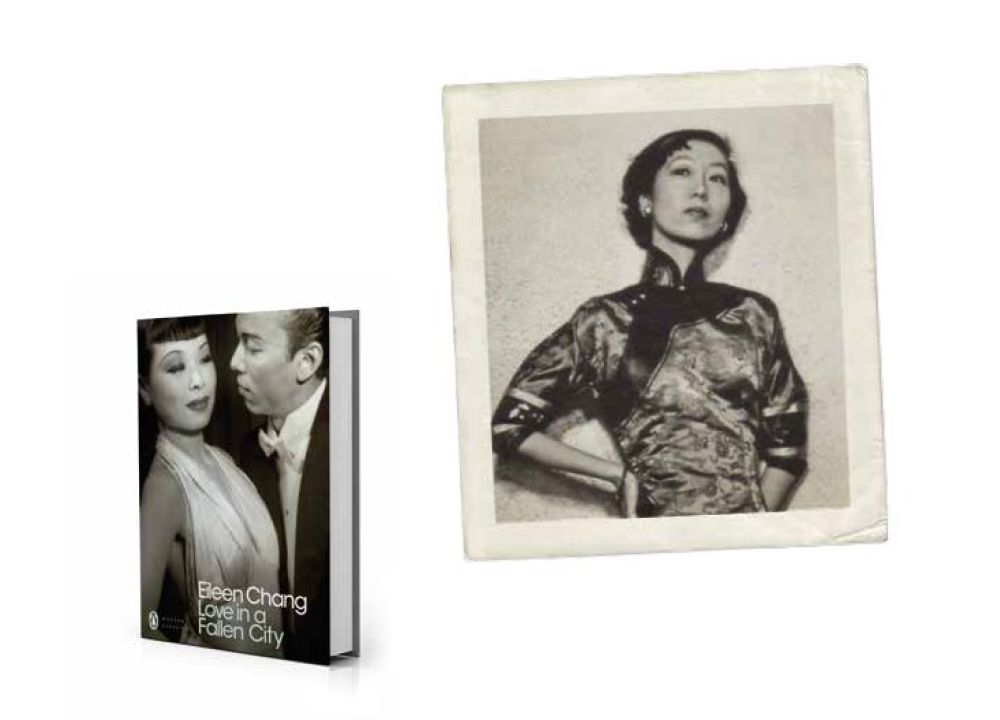Discover an homage to author Eileen Chang,
nestled in The Repulse Bay Gardens
Surrounded by books, the bench represents Eileen Chang's greatest period of output.
Mere steps from The Repulse Bay is a wistful monument to one of the most beloved Chinese authors of the 20th century, Eileen Chang, whose novels of depth and delicacy resound still. One of her best-known novellas, Love in a Fallen City, is not only a great love story, but a tribute to the romance of The Repulse Bay itself. Descend the main staircase of the resort, cross the road and enter The Repulse Bay Gardens to encounter three benches dedicated to the arc of Ms. Chang’s life. Born in Shanghai in 1920, she studied English literature at Hong Kong University, until forced to leave following the Japanese invasion of Hong Kong in 1941.

The suitcase is symbolic of her sad farewell when she departed from the U.S.
The first bench sculpture, with vintage photo atop a tea table and bullets scattered all around, depicts her violently interrupted youth. The second bench, littered with pens and surrounded by stacks of books, represents her period of greatest literary output. The third, with suitcase by its side, is symbolic of her sad farewell when she departed for the U.S., where she died in obscurity four decades later in 1995.

Chang’s stories have been dramatised many times – notably the 2007 movie Lust, Caution with Tony Leung, directed by Ang Li, and Love in a Fallen City in 1984, one of the earliest films to establish the reputations of actors Chow Yun-Fat and Cora Miao. The latter movie is a step back in time that will resonate with every resident of The Repulse Bay. The story begins shortly before the Japanese assault, when a shy young widow from Shanghai and a sophisticated, cosmopolitan playboy are guests at the Repulse Bay Hotel. They stroll the same beach in front of us today, the gardens that are just as lush, and they meet for special moments together in The Verandah, almost exactly as it looks now, with its twirling fans, potted plants and wood shutters open to ocean breezes. They approach, retreat and circle around their feelings for each other. It is only upon the Japanese invasion of the territory, attack upon the hotel (heart-racingly depicted in the film) and the aftermath of occupation in which they cling to each other through hardship, that their love is cemented. Whether or not you decide to dip into Ms. Chang’s literature or glimpse the film adaptations, pause for a restful moment on one of the benches dedicated to her – in your imagination you just might see the shadow of the “fallen city” lovers, or that of their creator, passing by.







